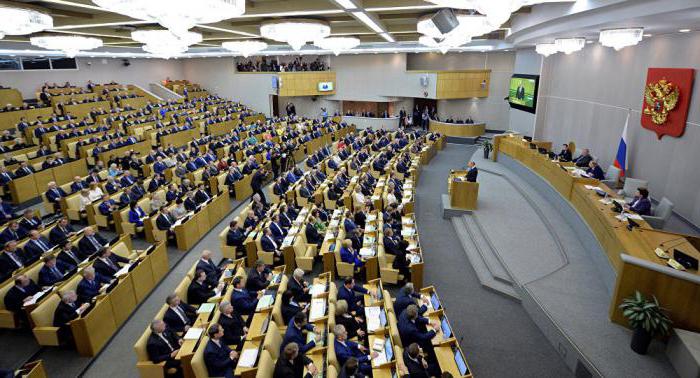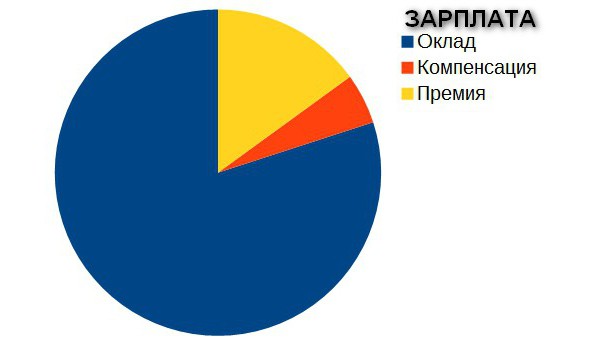The minimum wage is the amount established at the legislative level. They are guided by it when calculating the minimum allowable wage, as well as some benefits. Can the salary be less than the minimum wage and under what conditions? In general, an employee’s monthly income should not be lower than this level. But, as always, there are many nuances.
Minimum wage and the minimum wage of the subject
The minimum wage in 2017 is 7800 rubles, and from next year it will increase to 9489 rubles. Starting from 2019, the minimum wage will be brought to a living wage. Now this equality is not respected, although the Labor Code expressly states that this is unacceptable.

Regional authorities have the right by special agreement to introduce their own minimum wage. He is called the minimum wage - the minimum wage. Its size cannot be lower than the minimum wage established by the federal government. I must say that many regions enjoy this right and set minimum wages at a higher level than the minimum wage. In 2017, the minimum wage of some regions significantly exceeds the federal minimum wage. So, in the Murmansk region, the minimum wage is 18 750 rubles, in Kamchatka - 15 800 rubles, in St. Petersburg - 16 000 rubles, in Moscow - 17 561 rubles.
The mentioned norm of the law theoretically gives employers the right to refuse to use the regional minimum wage in favor of a lower federal minimum wage. This can be done within 30 days from the date of publication by the regional authority of the agreement on the introduction of the minimum wage. However, this requires very good reasons, which should be documented. The authorities, for their part, must enter into the difficult economic situation of the employer and resolve such a refusal. In practice, this is rarely used, and experts do not recommend saving on salaries in this way.
What salary consists of
Now we will analyze what salary is - it is necessary to understand whether it is possible to establish a salary less than the minimum wage. The components of wages are:
- salary / tariff rate;
- Compensation - various surcharges, including for difficult working conditions and climate, for night shifts and others;
- incentive payments - all kinds of bonuses, for example, according to the results of the year, for seniority and so on.

In addition, there are certain types of payments that are not related to wages. For example, this is compensation for vacation, for a business trip, for a forced termination of work, and others.
So can the salary be less than the minimum wage?
So, salary and salary - the concepts are not always identical. In general, the salary is calculated by the formula: ЗП = О + К + П, where О - salary or rate, К - compensation, П - bonuses and other payments in the form of incentives.
However, according to labor legislation, the level of the minimum wage (monthly wage) should not be the level of remuneration for the employee’s monthly labor, but not his rate or salary. And if the salary consists not only of salary, then setting the latter at a level below the “minimum wage” is not a violation. If the salary is less than the minimum wage, but there is a bonus and / or compensation, then this is permissible. Of course, provided that the amount in aggregate reaches the minimum wage guaranteed by the state or region.
But if the salary consists of only one salary (rate), it cannot be lower than the minimum wage. But this is a general case, from which there are exceptions.
When the salary is less than the "minimum wage"
The Labor Code makes a reservation: it is unacceptable to pay an individual a salary below the minimum value if he conscientiously fulfills the time norm set for him.In other words, if an employee works 5 days a week full time and performs his job duties, he must receive payment of at least the minimum amount.

And can the salary be less than the minimum wage in part-time employment? Of course, yes. Persons who work on an abbreviated schedule, for example, several days a week or 3-4 hours daily, may receive less than the “minimum wage”. At the same time, the proportions should be maintained, that is, for half the working time, the employee should receive at least half of the minimum wage operating in the region.
Is tax included
As you know, the income of employees is subject to personal income tax. Withholding tax on payments and transferring to the budget should be the employer, who is a tax agent in relation to employed persons. The personal income tax rate for residents of Russia is 13%. The question arises: should the minimum wage be maintained before or after the deduction of personal income tax? In other words, is it possible to give an employee an amount below the minimum wage for the amount of tax per month?
According to the law, the individual income tax is calculated on the amount of the salary paid by the employer. And even if a “minimum wage” is charged, this does not exempt from the payment of personal income tax. Therefore, in the hands of the employee will receive an amount reduced by the amount of tax.

How not to make a mistake with the calculation of salary
First of all, it is necessary to check whether the region has set its own salary minimum level. If set, then the salary for a fully worked out temporary norm should not be less than this value. In the absence of a regional “minimum wage”, an employee must receive at least the amount of the federal minimum wage.
Next, you need to determine whether the employee has fulfilled his labor standards in terms of work volume and time. If completed by 100%, then his salary should be at least the minimum wage (minimum wage). Otherwise, he is accrued a share of the minimum wage, proportional to the time worked (labor rate). For example, if working time was 40% of the norm, then he needs to pay at least 40% of the minimum wage or regional minimum, if any.
The next step is to determine the composition of the salary. To establish a rate or official salary less than the minimum wage is permissible only if the employee is entitled to some compensation, bonuses and other payments that relate to wages. If it is supposed to pay a “clean” salary, then it should at least correspond to the minimum wage (minimum wage).
If there are additional payments, it is necessary to calculate and take into account their amount. The salary can be reduced by the amount of the mentioned surcharges - this will be the minimum salary of the employee.

A responsibility
Paying salaries below the legal minimum is a violation of labor law. The employer faces administrative sanctions for this. The organization may pay a fine in the range of 30,000-50,000 rubles. Officials and employers will pay a fine in the amount of 1000-5000 rubles. However, for the first time inspectors can get along with a warning.
If the violation repeats, then a more severe punishment will be applied. Company officials may be disqualified for 1-3 years or fined in the range of 10,000-20,000 rubles. An individual entrepreneur faces a fine in the same amount, and for legal entities in the amount of 50,000-70,000 rubles.

findings
The minimum wage is established at the federal level - in the form of minimum wages, and in some entities and at the regional level - in the form of minimum wage. If the region has its own "minimal", then employers should focus on it. It should be borne in mind that the salary should not be less than the minimum wage or minimum wage without taking into account personal income tax. That is, the employee will receive an amount 13% less than the minimum salary.
As for whether the salary can be less than the minimum wage, it all depends on the composition of the salary.This is permissible if, in addition to salary, it includes bonuses and / or compensation. But only on condition that the total wage for a fully worked month, taking into account these surcharges, will be no less than the minimum value in force in the region.
And there will be HAPPINESS to you.